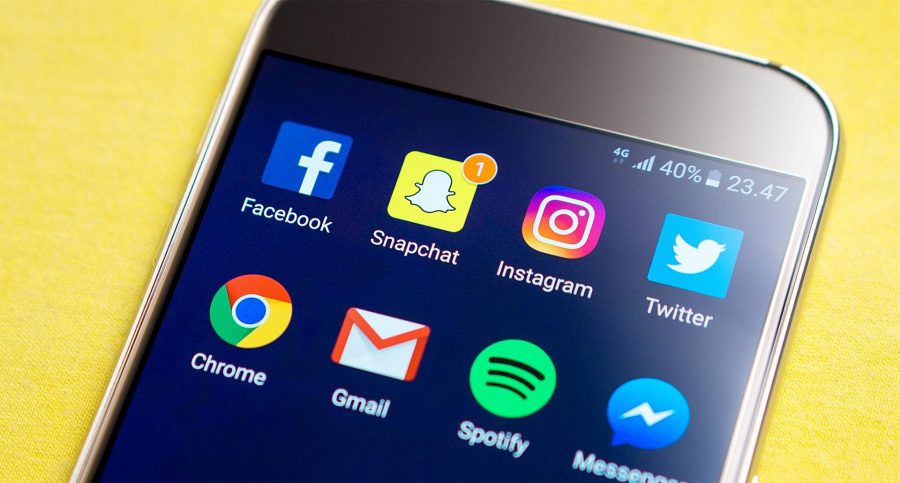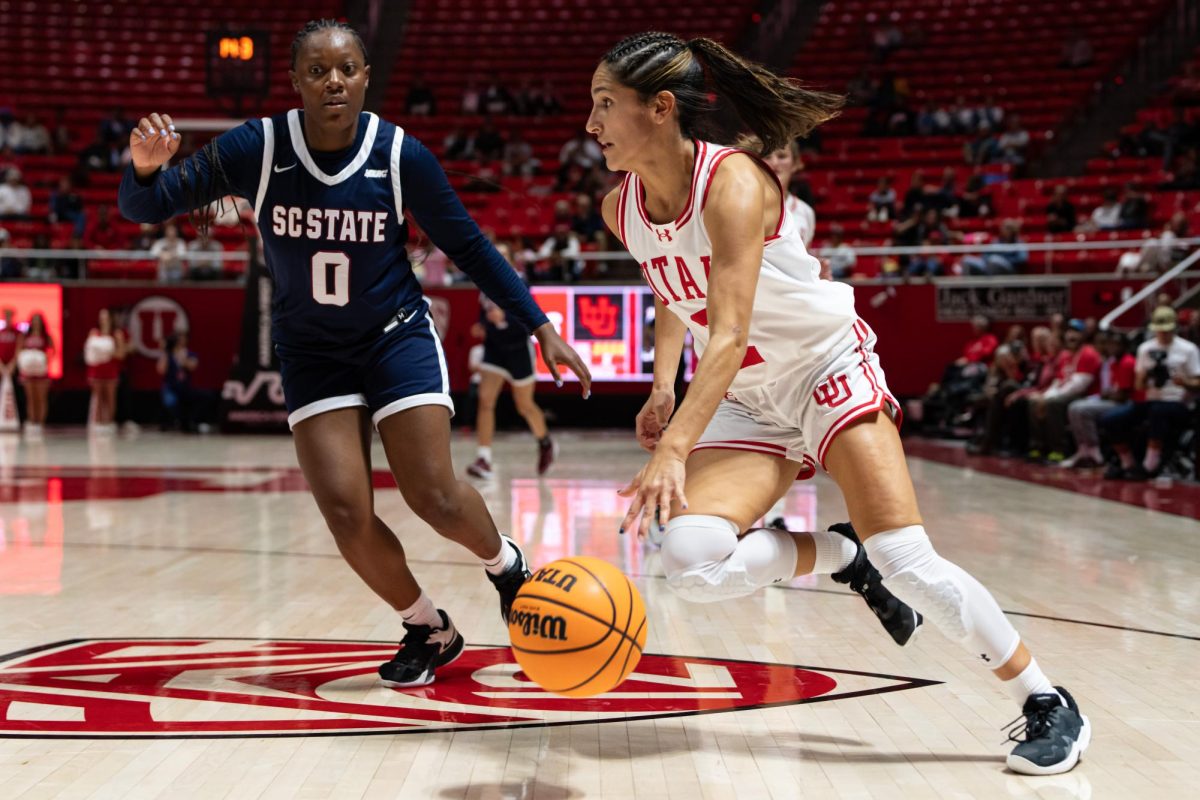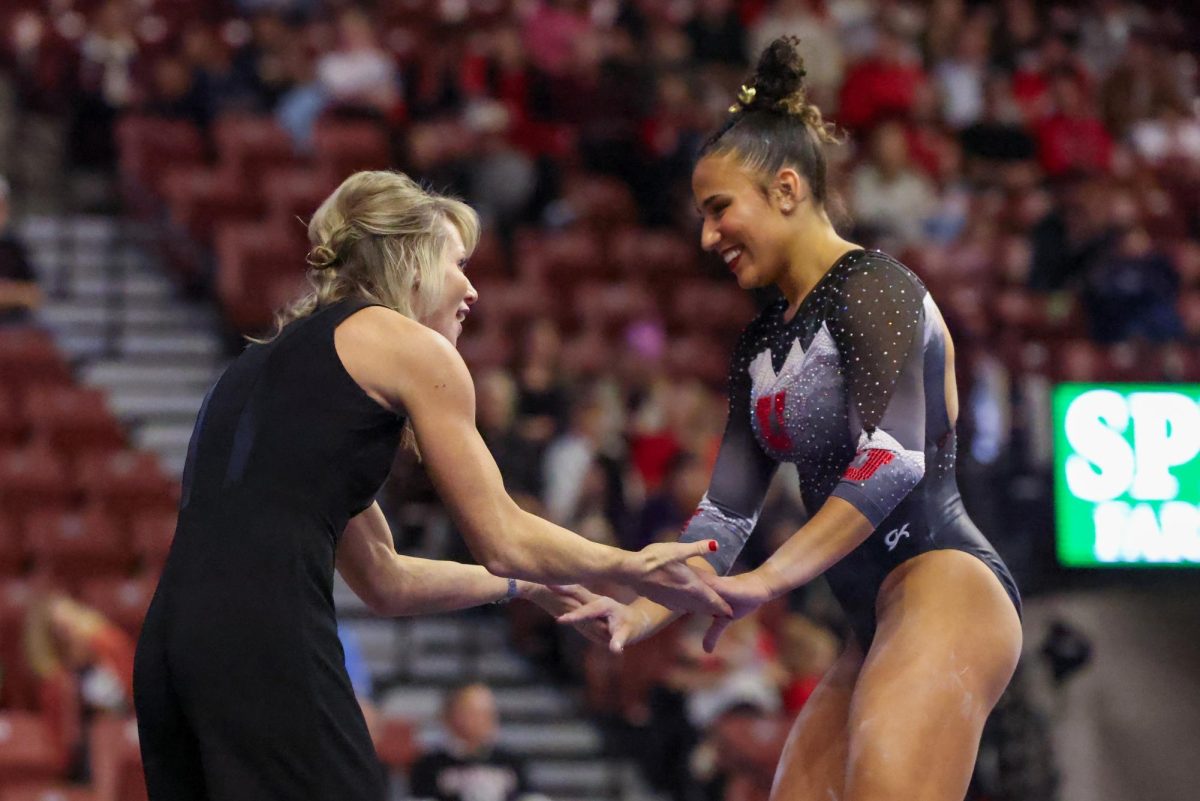Chavez: Curating Social Media Can Help You Feel Better
(Courtesy Pixabay)
August 27, 2019
The media and advertising we are exposed to shape our worldview. Every day we are bombarded with images and stories that are trying to sell us something — food, fashion, lifestyle, etc. The continuous growth of marketing in social media is so pervasive that it takes strong intention to step back and decide what we think or want for ourselves.
Although the sheer amount of content online can be overwhelming at times, there are benefits. We have incredible access to information and education. Everyone with access to the Internet has an outlet to tell their story. Each user also has the ability to curate their timeline and give themselves space from any messaging that they deem irrelevant or harmful to them.
Many aspects of this larger discussion apply specifically to Instagram. When I first started my account, I expanded my network by following many different accounts, from those of untouchable celebrities to everyone I knew from my town. I was raised in Idaho which, like Utah, has a predominantly white population. I’ve also been on Instagram long enough to remember when most of the celebrities I liked were hesitant to use social media unless they were selling or promoting something.
As the years passed and Instagram grew, I unknowingly curated a timeline that exposed me to certain messages. Models and actresses with seemingly perfect bodies and the health accounts that moralized and pathologized certain foods or eating patterns were always in my head. There was a lack of body diversity and representation of perspective on my feed, in the accounts I followed and within their subsequent advertisements.
I am a big fan of pop culture, but unfortunately diet culture and oppression remain wrapped up in conversations about art, film and television. Most faces and bodies we see in the media are those that meet a specific, conventional American beauty standard. Body fat is seen as the enemy. Skin is tanned, but not dark. Hair and makeup is always professionally styled, even when it is a fresh-faced, supposedly natural look. Imperfections are smoothed and features are altered in the digital editing process.
Our culture places an intense focus on how bodies look. Often it has been critical, but even self love remains complex. In recent years, hashtags like #bodypositivity and #bodylove have grabbed the attention of mainstream media, but the founders of Utah non-profit Beauty Redefined have some critiques. Through Beauty Redefined, Lindsay & Lexie Kite are doing the work — online and in the real world — of reminding women and girls that they are more than a physical body.
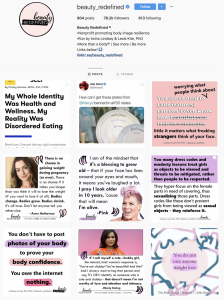
“Your body is an instrument for your use and experience, not an ornament to be admired,” they wrote in a recent Instagram caption regarding swimsuit season and the pressures to display one’s confidence online. “If you post pics in your suit, awesome! But never ever worry that you’re not confident enough if you don’t post a pic. You don’t need to prove your body love or body acceptance in photos.”
“Beauty Redefined” is one of many important local voices that speak out against the objectification, diet culture and the unattainable health and beauty standards on Instagram. Paige Smathers is a registered dietitian, a podcast host and the owner of Positive Nutrition, a business which offers positive nutrition services in Salt Lake. She’s hosted body image resilience courses developed by Beauty Redefined and seminars outlining the facts and fiction of nutrition science. On top of running her business, Smathers also gives free resources and advice through Instagram stories almost daily, taking the time to let her followers know that they are not alone on the difficult journey of seeking health and happiness.
Tiffany Roe, the owner of Mindful Counseling in Orem, also uses Instagram posts and stories to connect with people and “change the mental health game,” as she likes to say. In a society that rewards hustle, ego and dominance, she uses social media to encourage people to step back and evaluate how they really want to care for themselves and others.
When her latest “Therapy is Cool” and “Don’t Be a Butthole to Yourself” merchandise was about to be released, Roe was intentional about finding models of all sizes and backgrounds to represent the message. She acknowledges the levels of systemic oppression that exist against marginalized bodies — such as people of color or those labeled as fat or disabled — and is doing her part in hiring and making visible those that may not get as many opportunities.
Representation in media and advertising matters. Despite the economic value of a larger customer base, the main factor in striving for diversity should be inclusion. Everyone can see themselves represented and feel part of a bigger picture. At the end of the day, everyone just wants to feel like their existence is valued.
Striving to make art and advertisements inclusive, with respect to different groups’ identities and lived experiences, will only make our culture and society richer. This was a lesson that a Provo-based swimwear company, Kortni Jeane, had to learn earlier this year. The company was criticized by Twitter users in April for a marketing campaign goal to feature women from “all walks of life.” This sounds good at first, but as Taylor Stevens from The Salt Lake Tribune reported, “The problem? Nine of the women are blonde and all appear to be white.”
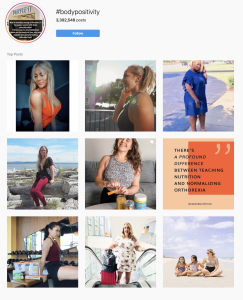
When users online pointed out the glaring fact that “all walks of life” should include women of different racial backgrounds or ethnicities, the owner deleted the comments and deflected criticism by saying that no models of color responded to their casting call. After a few weeks went by, Kortni Jeane posted an apology in the caption of an Instagram photo of fourteen women of varying sizes and skin tones, all wearing different pieces of black swimwear.
“I want to apologize to those who felt excluded by my brand in my latest campaign as that was not and is never my intention. But there is always room to do better, be better. As I continue to press forward I commit to offering more diversity,” she said. “I want every woman no matter your age, race, body type, background to feel confident and comfortable not only in a swimsuit but in this space, as part of Kortni Jeane.”
Although their initial response was defensive, I am encouraged by Kortni Jeane’s apology and their commitment to do better. Their current website and Instagram feed features models that are much more representative of women everywhere, and I hope they continue to embrace women that are truly from all walks of life.
I’ve had an Instagram account for 7 years and it has been fascinating to observe the changes in the online culture. I have used the site many different ways — following anyone I knew, watching more celebrities becoming active and now finally consuming content from brands and corporations. I have recognized the responsibility that Instagram carries. They hold economic and brand power, but they also have significant impact on users’ self-image.
Instagram will not disappear any time soon, so users ought to make the best use of it. If users continuously feel bad about themselves or their body after scrolling through the timeline, maybe it is time to take a break. After a few days or weeks off, these feelings can be reevaluated.
Pages for #fitspo, #thinspiration, and #whole30 will always be there when one chooses to seek them out. Through my own journey, I’ve realized that the awareness around the messaging I’m being exposed to has led me to discover that my true values lie with compassion, diversity, empathy and mental health. As a consumer, I will continue to use social media and Instagram to support those values. When going back online, consider unfollowing the accounts that cause people to feel like garbage and seek out some that don’t create that response. There is no guarantee that self-esteem will skyrocket, but I can tell you from personal experience that curating my timeline in this way has helped me immensely.


